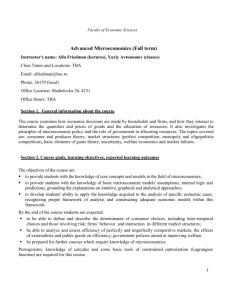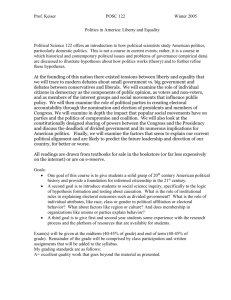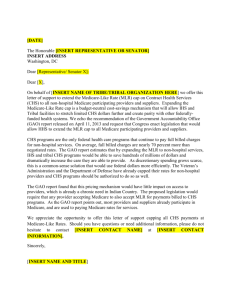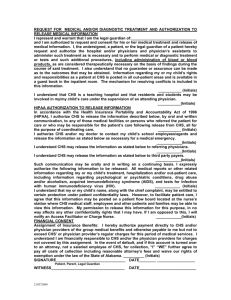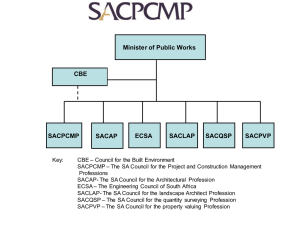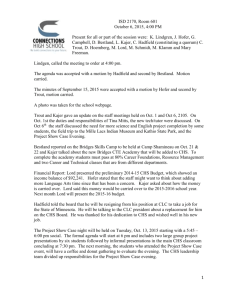Strengthening Church and Government Partnerships for Primary
advertisement
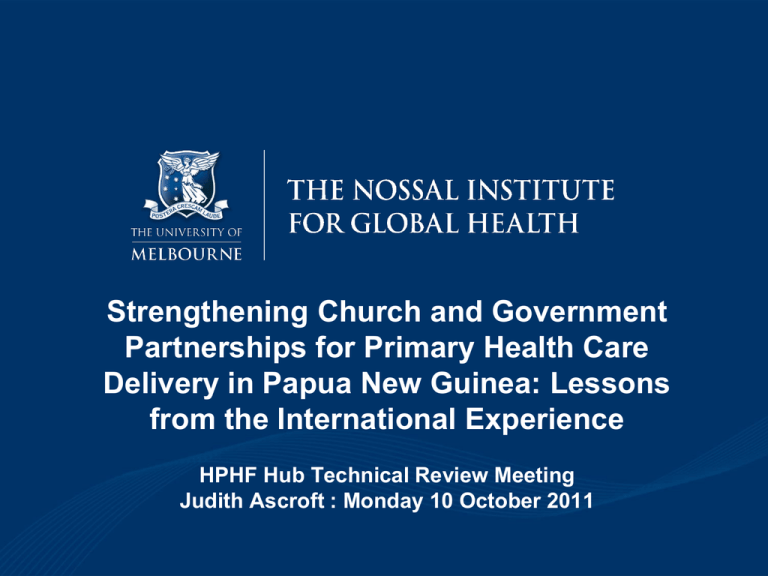
Strengthening Church and Government Partnerships for Primary Health Care Delivery in Papua New Guinea: Lessons from the International Experience HPHF Hub Technical Review Meeting Judith Ascroft : Monday 10 October 2011 What is the issue ? • CHS providers manage up to 50% of rural and remote facilities in Papua New Guinea – 6 of 9 nurse training facilities – 14 training facilities for community health workers • The relationship between church health service providers and government in PNG has been described as ‘weak’ – No formal agreement in place • Research aimed to understand differences in service provision, the nature of the engagement and opportunities to strengthen the relationship Research Questions 1.What makes primary health care service provision by church based organisations different to government health service provision? 2.What are the characteristics of existing arrangements for governments to engage non-government, non-profit providers of primary health care services? Background and Context • PHC facilities are the predominant point of access to the health system for 87% of the population in PNG – Infectious diseases and maternal and child health greatest burden • Health system decentralised and fragmented – Disconnect between programs, priorities, service providers and levels of govt • PHC service provision has deteriorated – Minister “Our health indicators have not improved over the past 10 years” – MMR – 733 per 100,000 live births • Government grants make up to 70-100% of total funding to CHS – Many attempts to develop MOUs, MoAs, and CHS Act to provide a legal framework for an agreement Approach/Methodology • Research questions identified through working group meetings – Knowledge Hubs, AusAID, NDoH, CMC • Literature Review training for research partners at Divine Word University (plus NDoH) • An empirical study based on a literature review of international peer reviewed and grey literature • Search strategy broad enough to identify evidence relevant to one or both research questions • Focus PHC in developing countries and relationships between not-for-profit health service providers Limitations • Predominantly descriptive case studies and program evaluations • Studies selected on the basis of relevance to research questions but no quality assessment • Key themes were identified for each research question but no detailed description or critique of each paper • Little evidence specifically identifying differences – demonstrated through discussions of strengths and weaknesses of CHS or Govt • Cannot draw a broad conclusion that CHS are better or worse in a given situation Overall Findings • A range of challenges in effective stewardship of mixed systems in countries such as Papua New Guinea • Examples of strong collaboration but also strains on CHS in some African countries • Critical factors: – high level support from MoH; – willingness of CHS providers to fully support implementation of NHP and policies; – strong, trusting partnership working for the benefit of the overall health system; – an enabling environment in which the partnership can flourish Key Findings • Issues with the health system ‘building blocks’ of leadership and governance, financing, health workforce, and service delivery eg: – CHS can be isolated from national policy and planning – Reluctance to adopt national policies eg related to family planning – A lack of transparency and consistency in financing of CHS – ‘Competition’ for human resources, salary differences, restrictive hiring practices – Differences in culture and management styles that can impact on ‘trust’ Key Findings (contd) • Complex relationship between faith and health influences both health seeking behaviour and health service provision • Relational contracts have been used to build trust and reduce costs of managing and monitoring ‘classical’ contracts • Important to create conducive conditions for successful contracting – legal framework, discourage corruption, capabilities to use programmatic, administrative and financial data, functional HIS • ‘Incomplete’ decentralistion and poor communications can impact negatively on partnership Factors which can be built on to enhance the partnership in PNG • PNG has a number of strategies, structures, policies and systems in place – Framework of new NHP 2011-2020 – Provincial Health Authorities Act 2007 • Recognising CHS as NFP public sector partners • Responding to local contexts within the framework of national policies • Assured funding commitments (Govt) and improved transparency (CHS) • Involvement in policy, planning and implementation of agreed standards • Utilising the strengths of CHS in training • Acknowledging and managing differences in culture and style • Accessing support from development partners to enhance the partnership Thank you • Questions?





